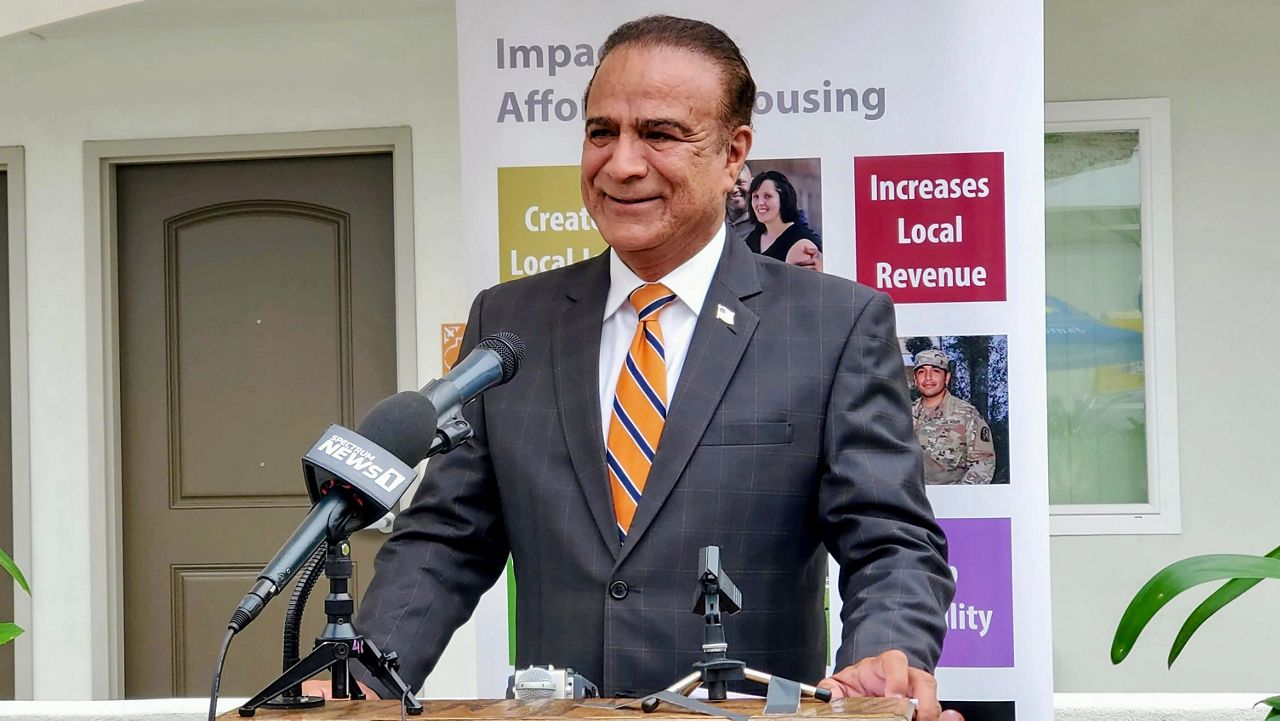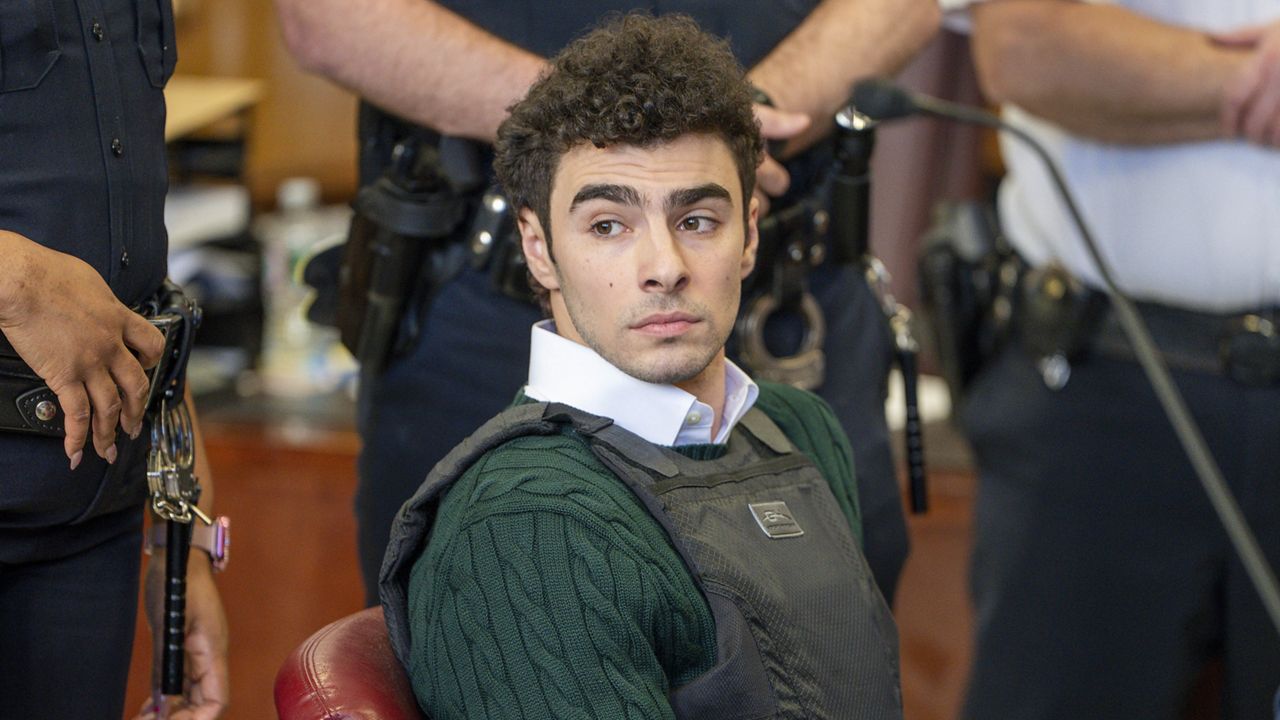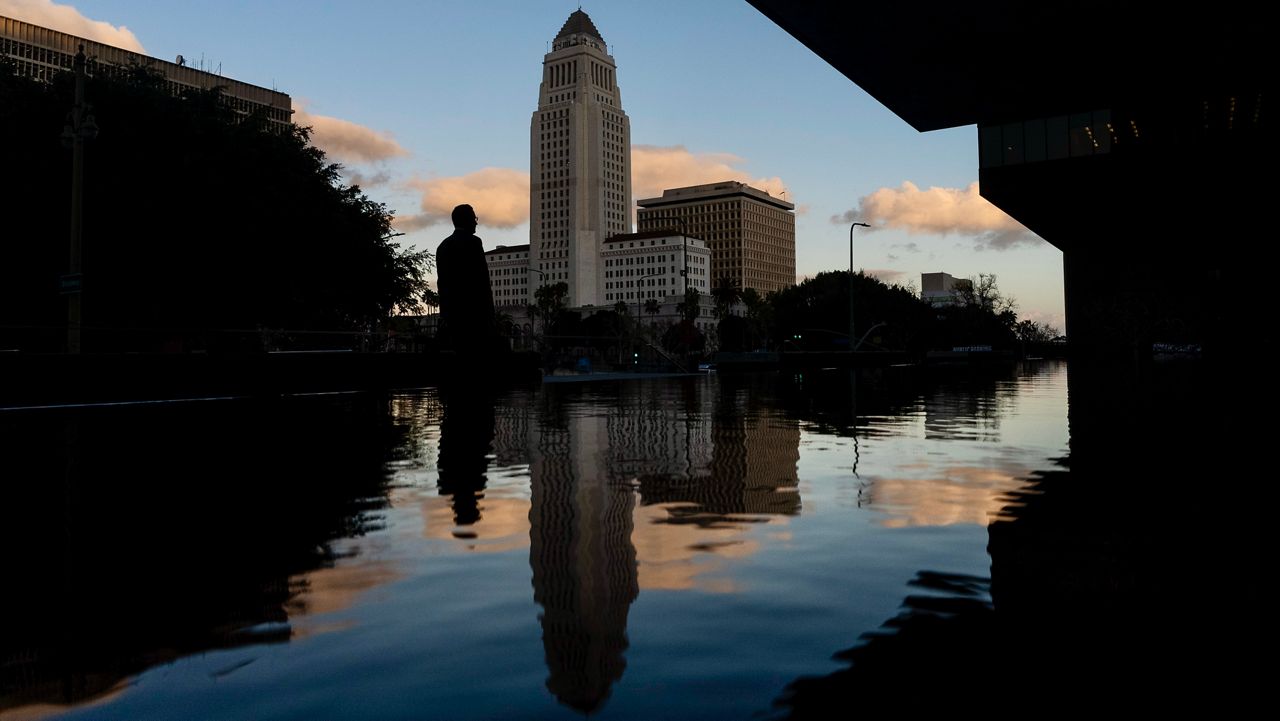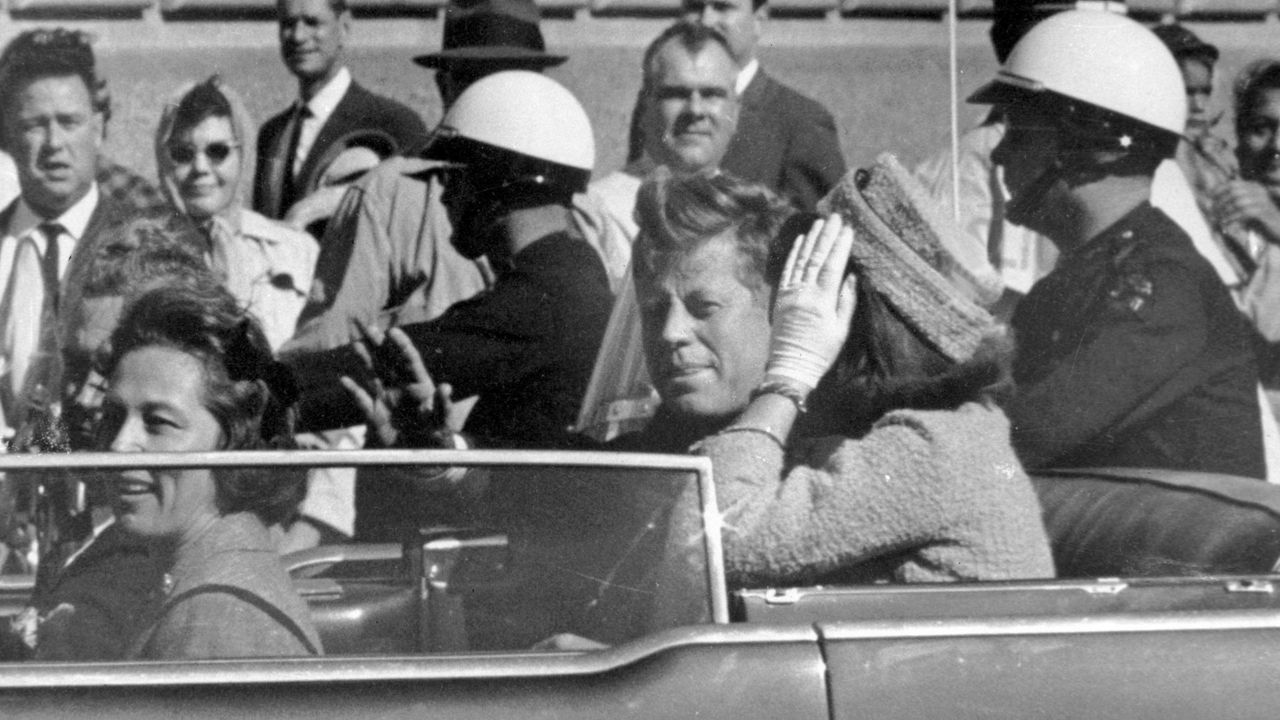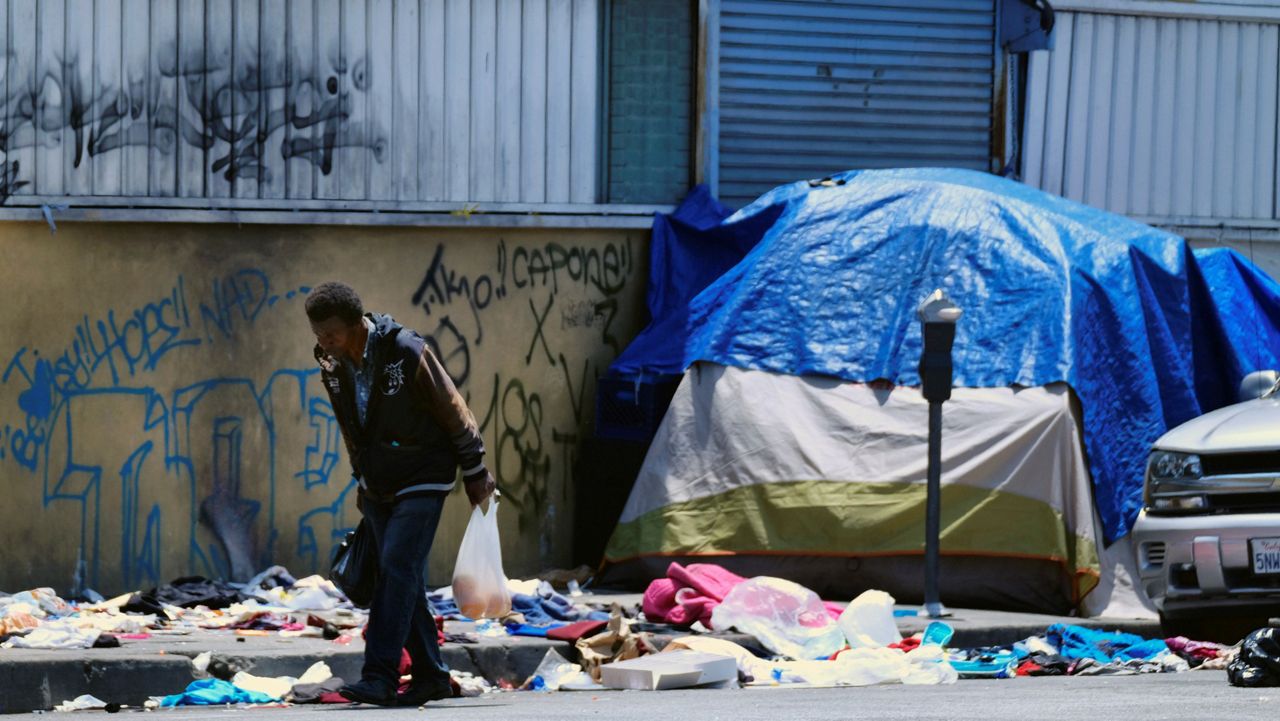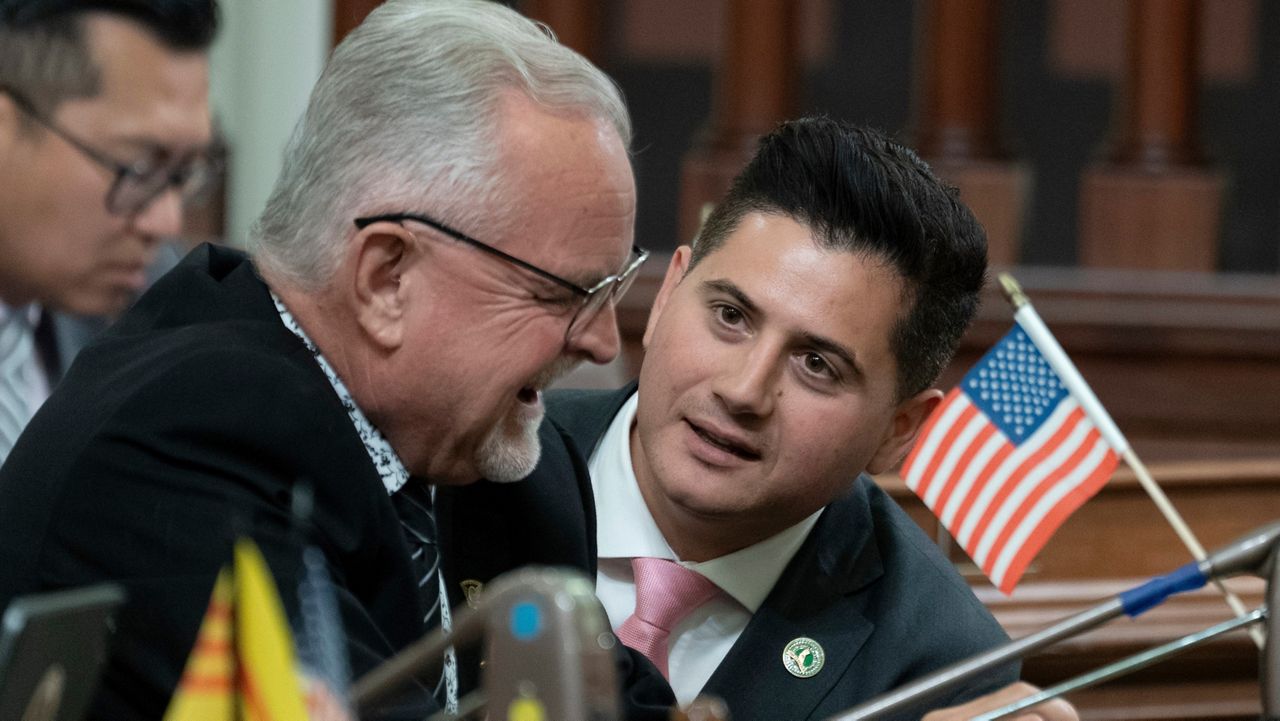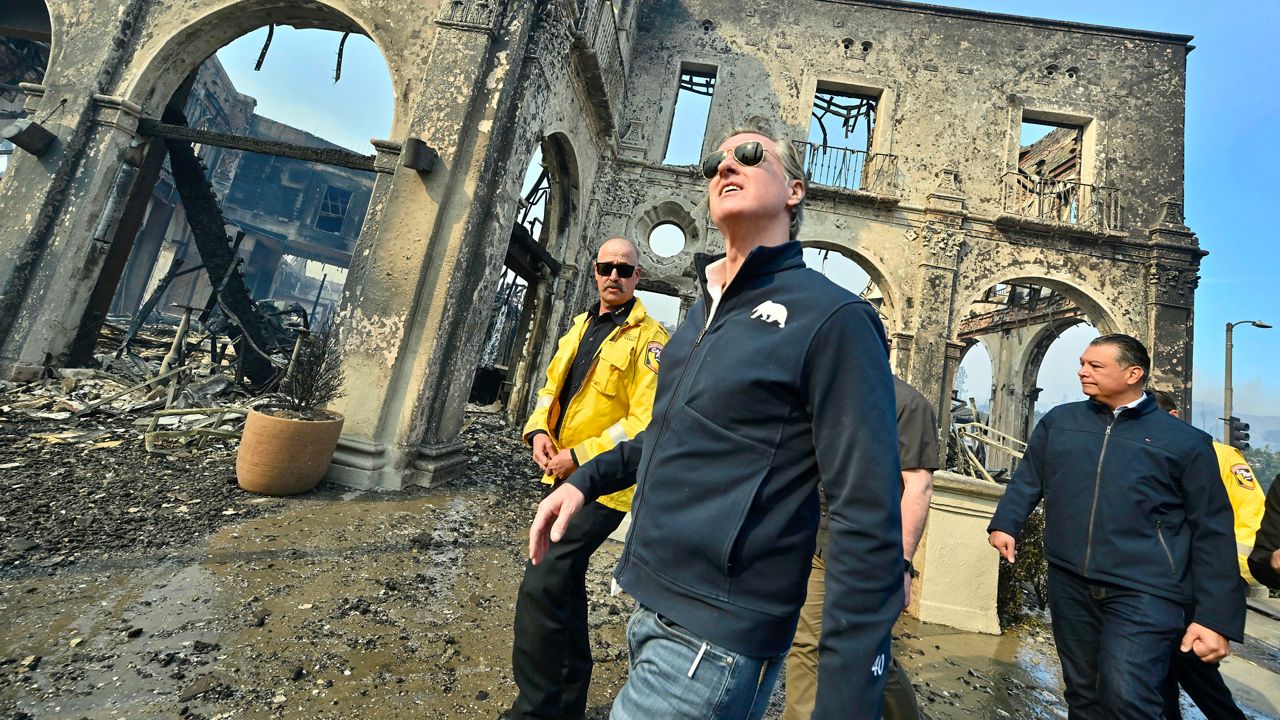SANTA ANA, Calif. — Former Anaheim Mayor Harry Sidhu was sentenced Friday to two months behind bars and was ordered to pay a $55,000 fine for his guilty plea to obstruction of justice, wire fraud and lying to federal investigators about his role in the city's effort to sell Angel Stadium.
Sidhu, 67, was also ordered to spend one year on supervised released following his prison time.
When Sidhu pleaded guilty in September 2023 he was facing eight to 14 months in prison. Sidhu's attorneys filed court papers March 14 arguing for three years of probation and a $40,000 fine. Probation officials recommended three years of probation along with a $175,000 fine and 400 hours of community service.
Assistant U.S. Attorney Melissa Rabbani argued for an eight-month sentence.
U.S. District Judge John Holcomb sided with prosecutors' argument that prison time was justified.
"I do believe the defendant did betray the city of Anaheim," Holcomb said. "He lied to FBI agents and there are consequences to these actions. ... You acknowledged that in your letter (to the judge)... That breach of trust warrants a term of incarceration."
But Holcomb credited Sidhu for "significant cooperation" with authorities and his quick admission of guilt as factors justifying a lesser time behind bars.
The judge agreed with Rabbani and defense attorneys that offsetting some custody time for a higher fine would send the wrong message.
Sidhu has until Sept. 2 to turn himself in.
Sidhu's attorneys, Paul S. Meyer and Craig Wilke, drilled down on their arguments that the emails the ex-mayor deleted and his statements on a wire that he wanted a $1 million campaign contribution from the Angels did not justify a tougher punishment under the federal government's sentencing guidelines.
Meyer acknowledged they were making a "fairly nuanced" argument, pointing out the investigators already had an email of the terms of the deal that Sidhu received from the city attorney and forwarded to his political mentor and a consultant for the baseball team. Their argument focused on the language in the law regarding how crucial the deleted document was to the government's case and that the "boastful" comment that he should get a $1 million campaign contribution came 16 months after the stadium deal was approved.
Wilke also argued that the terms of the agreement that were being negotiated were already public knowledge and that it was a confidential document only because it came from the city attorney. But Rabbani countered that the document was a major part of the investigation.
"This memo didn't affect the outcome of the deal," Wilke said.
The defense attorneys also disputed that it was a "public corruption" case. They said Sidhu was motivated more by political embarrassment than anything else in that it might make it look as if he were "too cozy" with a major business in the city.
Meyer argued that the case "started out as a public corruption investigation and it didn't pan out."
Meyer pointed out that Sidhu had already done "self punishment" such as his quick resignation when it came to light he was under investigation and his repayment of the taxes he owed on a helicopter he bought.
Meyer argued there was no "quid pro quo" agreement that he push through the stadium deal in exchange for the campaign contribution. Rather, it was a "boastful" and "stupid" comment he made while discussing his re- election campaign.
Sidhu told Holcomb, "All I have to say is I'm ashamed. And I put my whole heart into the letter I've given to you."
Rabbani said she wished more public figures accused of corruption would act as Sidhu did when his investigation began.
"He's been very cooperative," she said. "But I do think the breach of public trust is significant."
If the confidential memo from the city attorney was no big deal "there would be no reason to forward it to the Angels," Rabbani argued.
It's true, she acknowledged, there was no evidence of Sidhu seeking a bribe in exchange for his help pushing the stadium deal through, but his comment about the expected campaign contribution shows his "state of mind" at the time, Rabbani said.
"The defendant betrayed the city ... with an expectation of getting a political benefit," she said.
She agreed that Sidhu was attempting to sidestep "political blowback," but he also admitted in his plea agreement he was also motivated by attempting to slow down or impede the investigation.
Prosecutors noted in court papers that when investigators confronted him, Sidhu deleted multiple emails related to the negotiations.
"And when he was first approached by the FBI about the negotiation, he lied — claiming that he did not recall sharing confidential information with the Angels and that he expected `nothing' from the Angels after the sale," prosecutors said.
Sidhu also pleaded guilty to lying to authorities to avoid paying a California tax on his helicopter.
"A significant downward variance sends a troubling message: it suggests that defendants who engage in white-collar, public-corruption crimes like this one can simply remove themselves from public life, pay a fine, and face minimal consequences, with incarceration reserved only for blue-collar, less-privileged defendants," prosecutors said in court papers.
Sidhu pleaded guilty to using his position as mayor to funnel inside information from the city to then-Anaheim Chamber of Commerce CEO Todd Ament and a consultant for the Angels, using personal email instead of official city accounts to orchestrate mock City Council meetings on the stadium sale in 2020, and lying to FBI investigators when they confronted him about the corruption.
Sidhu also used a friend's address in Scottsdale, Arizona, to avoid paying $15,887 in sales taxes on a used helicopter he bought for himself in California that was parked in a hangar in Chino.
Sidhu resigned in May 2022. Ament pleaded guilty in July 2022 to federal charges of wire fraud, making a false statement to a financial institution and subscribing to a false tax return. He cooperated with federal authorities investigating Sidhu and has not yet been sentenced.
Sidhu wrote a six-page letter to Holcomb, detailing his experiences emigrating to the United States in 1974 from India with "$6 in my pocket."
Sidhu said he struggled understanding or speaking English and enrolled in a community college in Philadelphia as his father recommended. His father told him he needed to get a job to pay for the tuition.
"My first job in this country was as a janitor at the local Holiday Inn, working night shifts," he wrote. "I cleaned restrooms and restaurants from 11 p.m. to 2 or 3 a.m. before coming home, catching a few hours of sleep and heading to school during the day.
"It was a tough life, balancing school and work but I found it rewarding. My first paycheck was $2.89 an hour. It was a satisfying feeling. Dad said, `Welcome to America. This is how you will build your future for our family.' "
Sidhu graduated from Drexel University in 1978 with a bachelor's degree in mechanical engineering — "a very proud moment for me," he wrote.
When he got laid off from a job on the East Coast he moved to Northern California in 1980, and after he was laid off from another job he landed in Glendale, he wrote.
Eventually, Sidhu worked for himself as a contractor and real estate broker and then got into the business of running Burger King, Papa John's and El Pollo Loco restaurants across the Southland.
After the 1994 Northridge earthquake, his family moved from Granada Hills to Anaheim Hills, where he met former City Councilman Tom Tate while coaching a youth soccer team, which led him into local politics, he said.
Sidhu wrote that he "always believed that it was in the best interests of Anaheim to keep the Angels in the city." He added that losing the baseball team "would have been devastating to the city."
Sidhu said he regrets sending a summary of key deal points to Ament.
"I should never have done this," he wrote.
He said he deleted the emails because he thought his political opponents would use them against him in his reelection campaign.
"This was a criminal act, and I am responsible and ashamed for my crime," he said.
Sidhu said he had no excuse for dodging the helicopter taxes.
"I have no explanation for avoiding the helicopter sales tax besides not wanting to pay it," he wrote.
"I am deeply ashamed of my conduct and understand that there are consequences for my crimes," he said. "I have learned hard lessons from this experience, including disgracing my family and destroying my career and reputation. I felt this way before my plea and that is why I voluntarily resigned from my elected position. I am determined to go forward with integrity to rebuild my life."





